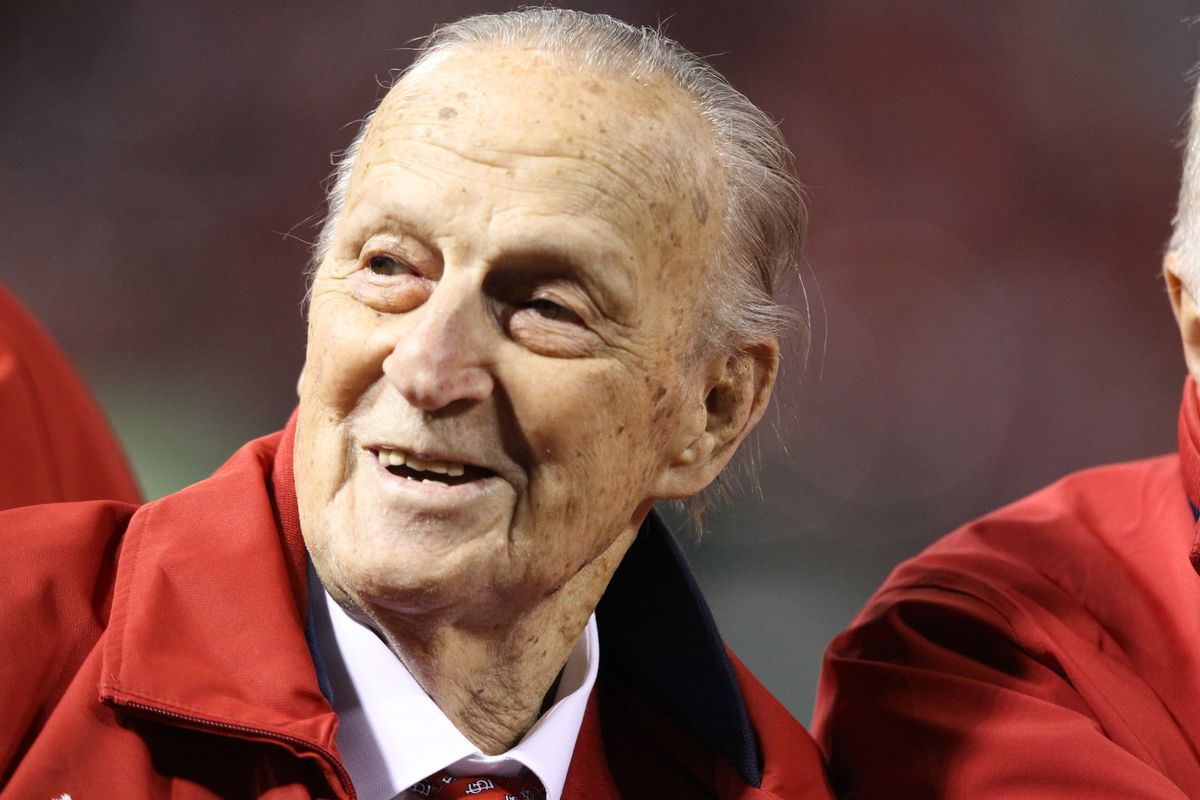Stan the Man and his salary demand

Much has changed in the world of baseball.
“Things are so different that I barely recognize the game at times,” Hall of Fame pitcher Nolan Ryan said in 2022 after a screening of “Facing Nolan,” his exceptional documentary. “About all that’s the same is the ball is round and white.”
Ryan, who holds 51 Major League Baseball records, isn’t exaggerating by much. Starting pitchers rarely complete a game.
“Don’t get me started on that,” Ryan said.
The pitcher known as the “Ryan Express” had 222 complete games during his 27-year career.
Replay and hitters stepping out of the batter’s box to adjust their gloves has slowed down a game that drastically needs to speed up.
And then there are the salaries. A $250 million contract has become a standard for a superstar. The major league minimum is $720,000.
Stan Musial, one of the finest players in the majors during the late 1940s and in history, ended his holdout 75 years ago Saturday. Musial, already a two-time MVP by 1946, asked for a $5,000 raise, which was denied. Musial’s salary remained at $31,000, the equivalent of $393,192.60 in today’s dollars.
The St. Louis Cardinals icon was making a fine living, but the first-ballot Hall of Famer was shorted by the Cards’ thrifty organization. Owners pinched pennies generations ago because they could. There was no free agency. Players didn’t have many rights and often worked during the offseason to make ends meet.
Hank Aaron, the home run king until Barry Bonds passed him in 2014, was in sales with Miller Brewing Company during the early days of his career with the Milwaukee Braves.
Musial, who was 27 and at his peak in 1948, had a great argument for a salary increase. Musial won his second MVP and second World Series championship in 1946. Superstars in bigger markets, such as the New York Yankees’ Joe DiMaggio and Ted Williams of the Boston Red Sox, made considerably more money. For the 1948 season, DiMaggio earned $65,000 and Ted Williams took home $90,000 .
From the vantage point of today’s guaranteed long-term contracts, it’s shocking that Musial had to prove himself again. But that’s what Cardinals owners Robert Hannegan and Fred Saigh told the left fielder: If Musial played well, he would be rewarded.
Musial delivered a season for the ages. He led the National League in batting average, hits, runs, RBIs, total bases, doubles, triples, on-base percentage and slugging percentage. Musial’s final MVP season inspired the owners to bump his pay to $36,000.
The organization couldn’t deny Musial, who was batting .403 at the All-Star break.
Since the lifelong Cardinal stayed in the heartland, Musial, who hailed from tiny Donora, Pennsylvania, never scored the acclaim of such New York legends as DiMaggio, Mickey Mantle or Willie Mays.
When the greatest of all ballplayers are bandied about, Musial doesn’t get enough recognition.
“It’s crazy how Stan Musial gets left out of all-time greatest conversations,” the Athletic columnist and Baseball Hall of Fame journalist Jayson Stark said. “But those who really follow baseball know how incredible Musial was.”
Baseball historian/statistician Bill James ranked Musial the 10th-greatest baseball player in history, and the second-best left fielder .
James took it a step further when he described Ken Griffey Jr. as the second-best left-handed hitting and throwing outfielder born in Donora.
Musial even won the respect of Ty Cobb, who was one of the most irascible and mercurial figures in the game.
Cobb, who was baseball’s hit king until Pete Rose passed him in 1984, was critical of ballplayers, but he was a huge Musial fan.
“No man has ever been a perfect ballplayer,” Cobb told Life Magazine. “Stan Musial, however, is the closest to being perfect in the game today. … He plays as hard when his club is way out in front of a game as he does when they’re just a run or two behind.”
Unlike Cobb, who was one of the most despised players in the history of baseball, Musial was known for being a gentleman on and off the field.
“All Musial represents is more than two decades of sustained excellence and complete decency as a human being,” baseball broadcaster Bob Costas said. “He didn’t hit a homer in his last at-bat (an allusion to Ted Williams), he hit a single. He didn’t hit in 56 straight games (hello, DiMaggio). He married his high school sweetheart and stayed married to her.”
Musial was married to the same woman for 71 years and also believed in racial equality.
Musial openly supported Jackie Robinson’s right to play in the majors.
After learning about the harmful effects of smoking in the 1950s, Musial refused to endorse tobacco products.
The soft-spoken legend appeared to be too good to be true on and off the field. Musial, who died at 92 in 2012, had a lifetime batting average of .331. He had the fourth-most hits of all-time at 3,630, hit 475 homers and nearly drove in 2,000 runs. Musial was one of the most productive players to don a major league uniform.
Musial took pride in being a role model as a ballplayer, husband and father.
Respect is apparently catchy as Albert Pujols, one of the greatest Cardinals sluggers, said he never wanted to be called “The Man” because “there is one man that gets that respect, and that is Stan Musial.”
Musial, however, failed to get respect when he asked for a raise 75 years ago.
But there was no way to deny him after he finished his unparalleled career in 1963.